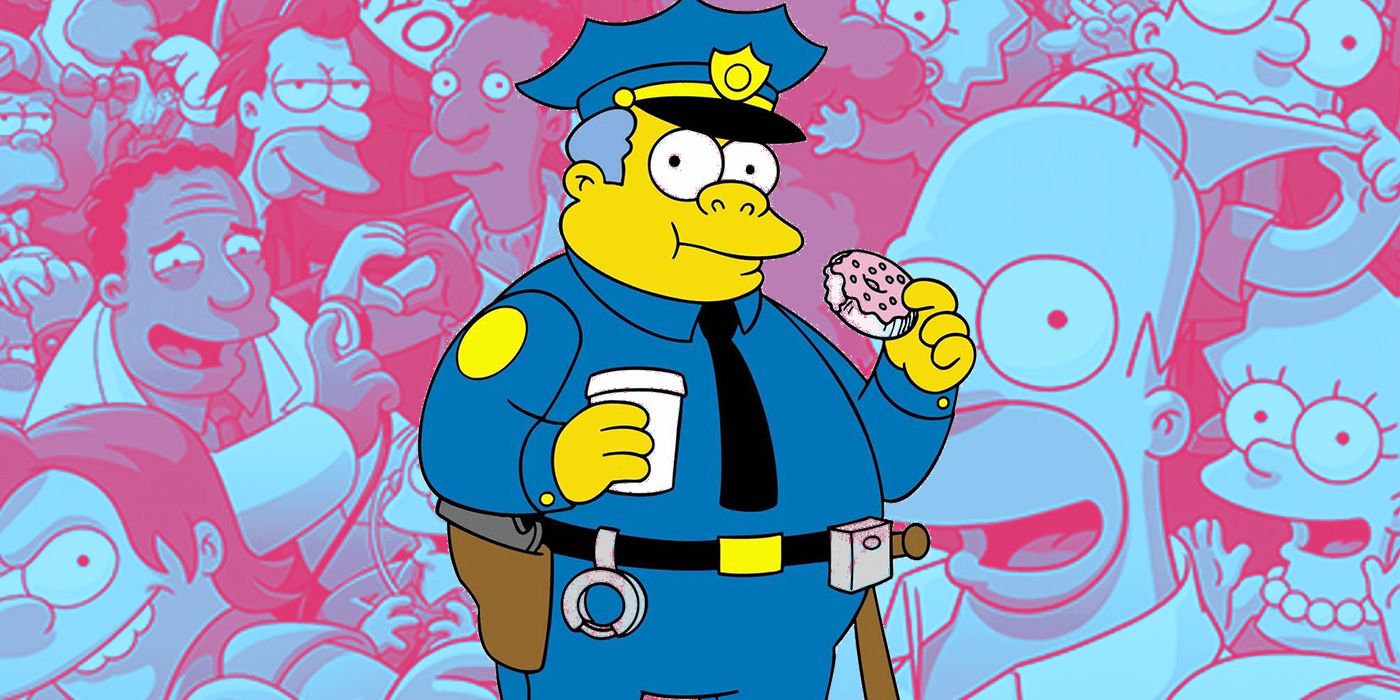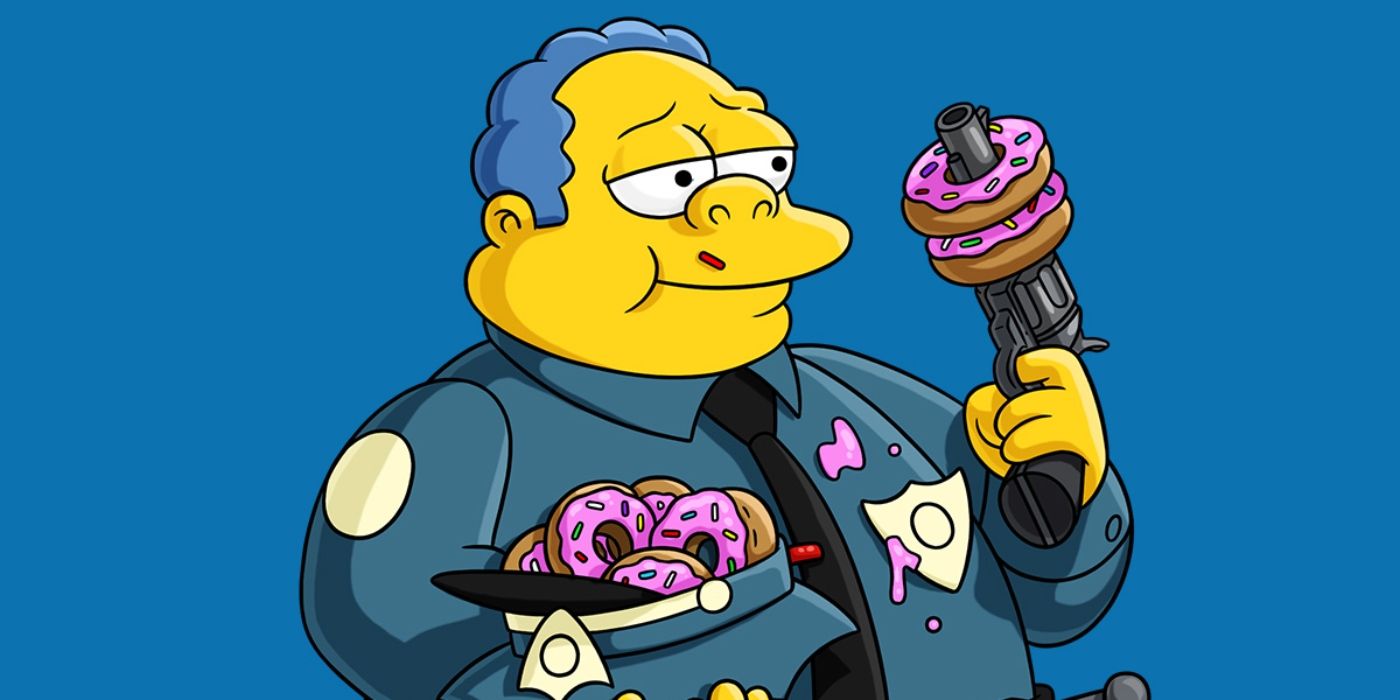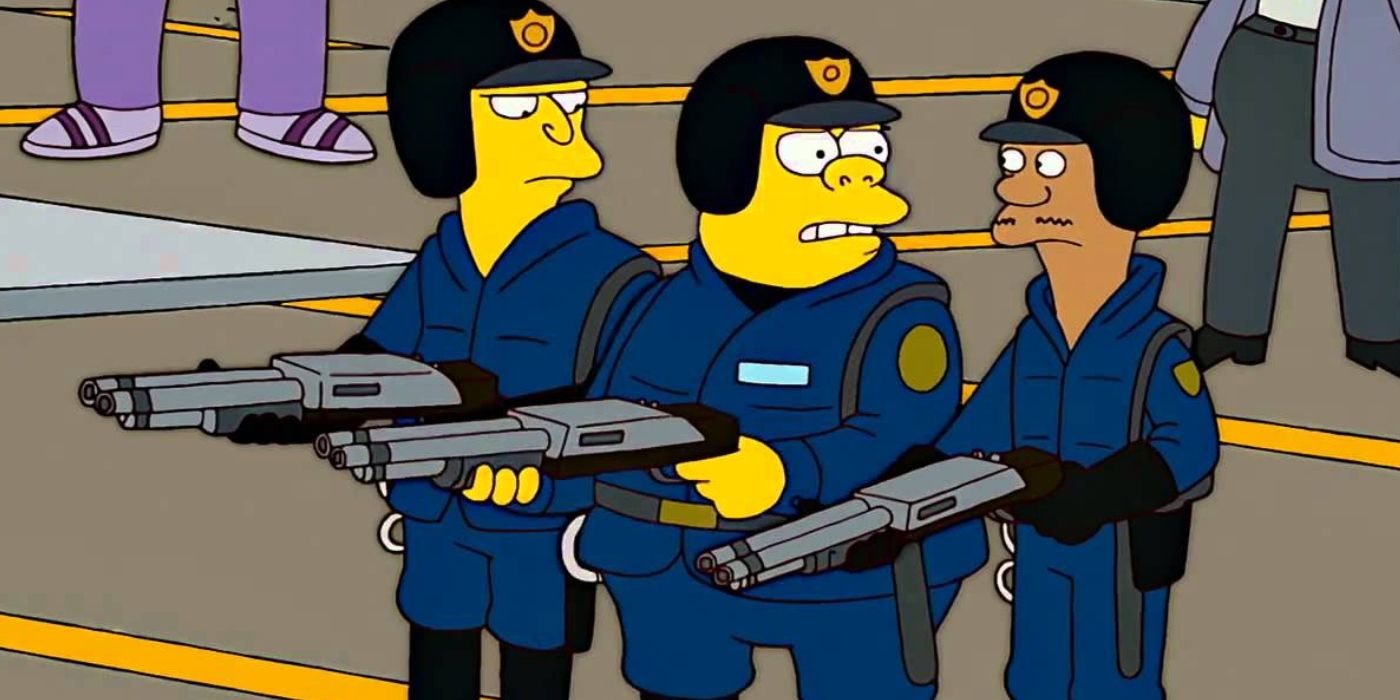As modern culture grows and changes, it's important for media to evolve and evaluate how it portrays the world. Shows like The Simpsons have been at the center of those kinds of discussion, with the controversy over the Indian immigrant character Apu (long-performed by Hank Azaria, a white voice-actor using a stereotypical Indian accent) becoming a notable lightning rod in the debate about representation and realism.
But there are aspects of the show that also deserve some examination -- especially in light of recent events -- including Police Chief Clancy Wiggum, whose ineptitude and corrupt nature has always made him somewhat unique among most portrayals of the police in America. In truth, exploring Chief Wiggum gives The Simpsons the chance to confront some harsh realities.
Clancy Wiggum is the Chief of Police for the town of small American town Springfield. Introduced early in the show's run, Wiggum quickly deviated from typical portrayals of the police from the same era. Most police officers in American media from the late '80s and early '90s were typically portrayed as a noble force for good. Shows airing around the same time The Simpsons premiered like COPS, Law & Order and NYPD Blue showed the police as good men and women, doing their best to help a broken system -- unlike Chief Wiggum.
While there had been bumbling police officers in western media, none of them were as boorish, corrupt or inherently problematic as Chief Wiggum. Wiggum was quick to throw away evidence or do away with police procedure, often leading to chaos in the streets or innocent citizens arrested. He's frequently bribed by the local government, openly accepting cash in exchange for willful ignorance. He's liberal with using force, quickly resorting to his gun regardless of the situation. Chief Wiggum is a police officer who has pointed a loaded gun at the main characters of the show -- including the children -- multiple times. And instead of being reprimanded or disciplined, he's actually risen in the ranks of the department.
Compared to other officers as they're portrayed in American media, Wiggum is a major deviation: a dope who shouldn't be in control of anything, let alone a police force. Even when he's removed from his position in episodes like Season 8's "Homer vs. the Eighteenth Amendment" or Season 13's "Poppa's Got A Brand New Badge," he's reinstated not through any action or redemption of his own but sheer pity or dumb luck. Comedic incarnations of the police in popular television (like Brooklyn Nine-Nine) are still portrayed in an overall positive light -- but not Wiggum. In something like The Wire, Wiggum would be considered a monster, but in The Simpsons, his "shoot first, ask later" authority is frequently unchallenged, uncontested and practically unstoppable.
It's notable that The Simpsons doesn't make Wiggum a monster, either. He is naturally naive and friendly and has an overall positive attitude not too dissimilar from Homer -- making him at least likable and goofy. He typically means well, even if prone to mistake. He's also shown to be one of the most dedicated and kind fathers in the show. He's always patient and understanding with Ralph, doing his best to push away any frustration out of sheer love for his son. Unlike Apu -- who in later seasons lost much of what personality he did have in lieu of increasing numbers of jokes -- Wiggum remained a unique and somewhat likable character when removed from his position within the town.
All of that makes him a surprisingly fully-fleshed out character, but also a problematic one. Wiggum's an officer with real, genuine flaws and dangerously incompetent ideas about his work, the world and the power it affords him. Wiggum is often shown to mean well but is incapable of not escalating a situation. Sometimes he really tries, and sometimes actually helps. Following multiple highly-publicized incidents of police brutality over the course of 2020, widescale protest and calls for reform have led to a cultural reexamination of how the police are portrayed in modern media -- with Brooklyn Nine-Nine actors calling for the show to take a more nuanced look at policing and COPS no longer airing new episodes in the United States.
Perhaps the answer isn't to phase Wiggum out of the show, as The Simpsons has largely done with Apu. Wiggum stood out as not just a parody of the police but a particularly pointed one -- a stark reminder that members of the police can want to be good people, can mean well and be your friend. But that they still easily could be short-sighted and corrupt, overly aggressive and dangerous -- and get away with it. Maybe it's best if the show confronts the history of the character head-on and what he means in a more aware political climate, and not just having him "prove" himself. Moving forward, The Simpsons should deal with the fact that Wiggum is the harshest and perhaps the most recognized satirical portrayal of policing in America -- and face it head-on.
Created by Matt Groening, The Simpsons stars Dan Castellaneta, Julie Kavner, Nancy Cartwright, Yeardley Smith, Hank Azaria and Harry Shearer. New episodes air Sundays.



